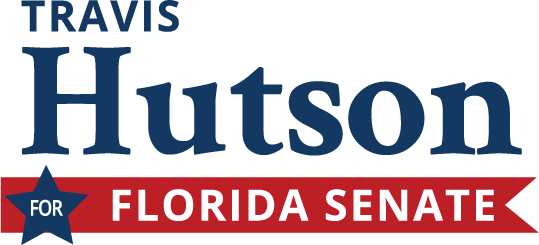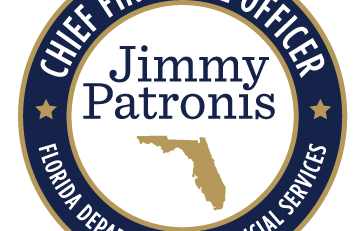Senate passes law calling for new elections security office under Gov. DeSantis control
The Senate passed a sweeping elections bill 24-14 Friday that establishes an election crimes investigations unit, bans ranked-choice voting, changes vote-by-mail forms and more.
SB 524, which contains several of Gov. Ron DeSantis’ “election integrity” priorities, passed the chamber along a largely partisan vote. Despite bipartisan agreement that the 2020 election was possibly the smoothest in Florida’s recent history, the bill is Republicans’ second measure in two years to tighten Florida’s voting laws.
Sponsored by Sen. Travis Hutson, the bill creates the 15-person Office of Election Crimes and Security within the Department of State, which receives and investigates complaints about voter fraud. It also increases the penalties on organizations that violate election registration laws from $1,000 to $50,000, and asks supervisors of elections to annually maintain voter roll lists instead of every two years, another of DeSantis’ requests.
A previous version of the bill would have required voters to put the last four digits of their Social Security, driver’s license or state-issued ID card on a voter identification form that is signed to send with vote-by-mail ballots. However, Hutson removed that provision with an amendment.
The amendment also adds a fine to organizations if a person collecting voter applications on its behalf changes someone’s party affiliation without consent. The fine is $1,000 per altered application.
During debate, Sen. Lori Berman said she thought the legislation is part of the national push coordinated by former President Donald Trump that there was fraud in the 2020 election.
“The only thing I can think is we are motivated by the ‘Big Lie,’” Berman said. “We know voter fraud is extremely rare. I just don’t understand why we are going to be taking our taxpayer money and creating this quote ‘police force.’”
Sen. Jeff Brandes, the only Republican to dissent on the bill, said he found the election investigative unit unnecessary. He said the spirit of legislation last year requiring code complaints to be non-anonymous runs counter to this legislation, which allows people to make anonymous elections complaints.
“I find that inconsistency something I cannot support,” Brandes said. “I think 15 people to go after a handful of complaints that will be substantiated is almost comical.”
Sen. Bobby Powell said the legislation makes voting more difficult, which will keep more of those not heavily interested in politics home from the polls.
“It is not going to stop people who intend to vote by any means necessary, but those who have rain, or any bit of pressure from voting,” Powell said. “Who loses when the people don’t participate? We all lose.”
He also pointed out that DeSantis and other Republicans said the 2020 election was secure.
“If we did it right, why are we trying to meddle with it and fix something that wasn’t broken in the first place,” Powell said.
Hutson said the state did have great elections in 2020, but he contended there is no voter suppression in the bill and the state’s supervisors of elections signed off on it.
“I would submit to you, we can always do better … we can always go further,” Hutson said. “What are we really afraid of here? That our elections are going to be too secure?”
HB 7061, the legisation’s companion, is awaiting final approval from the House. If it passes, the bill’s next stop is DeSantis’ desk.
The Legislature and the Governor agreed. The law will take effect on Oct. 1.





